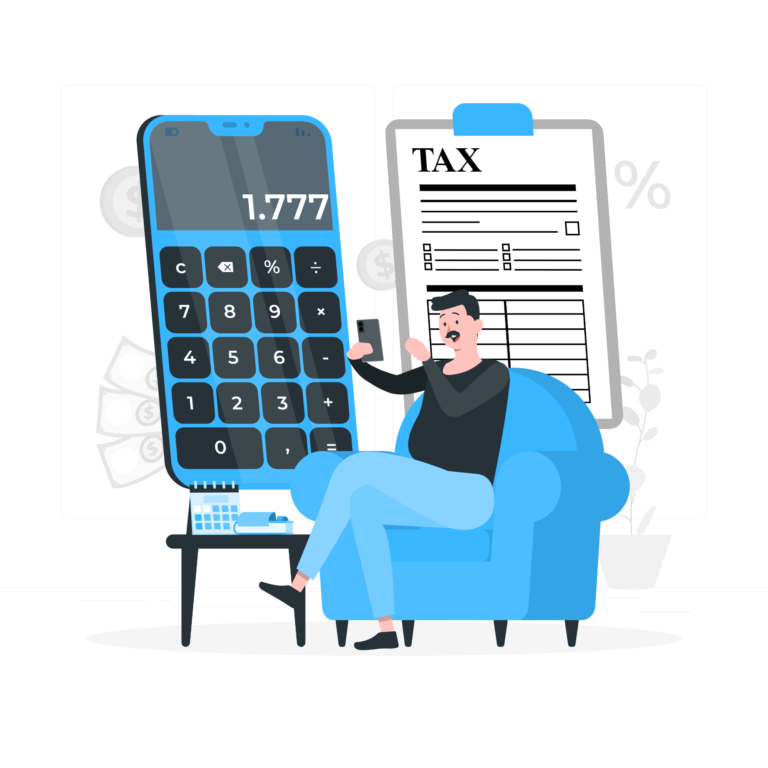What is real estate gains tax?
When you sell a property in the canton of Geneva, you are subject to property gains tax. This tax is calculated on the basis of the profits you have made on the sale.
Real estate profits are determined by the difference between the initial purchase price and the sale price of the property, as well as costs associated with the sale such as notary fees and land registry fees.
To give you an idea, in the canton of Geneva, real estate gains tax varies between 0% and 50% of realized real estate profit.
This means that if you make a property gain of CHF 100,000, you will have to pay tax of CHF 50,000 for a very short holding period (less than 2 years).
The canton of Geneva has introduced measures to encourage long-term property ownership.
For example, if you've owned a property for more than 25 years, you can benefit from a full tax exemption on real estate gains when you sell that property.
It's important to stress that this article only talks about real estate gains tax in Geneva.If you sell a property in another Swiss canton, you'll have to pay real estate gains tax in the canton in question.
Tax rates on property gains in Geneva
The tax rate on real estate gains in Geneva varies according to several factors. In particular, whether the property is held for private or professional use.
In the case of private ownership of property in Geneva, this tax ranges from 0 to 50% of the real estate profit realized on the sale. The rates are listed below:
- less than 2 years = 50%
- d'au moins 2 ans = 40%
- d'au moins 4 ans = 30%
- d'au moins 6 ans = 20%
- d'au moins 8 ans = 15%
- d'au moins 10 ans = 10%
- d'au moins 25 ans = 0%
Calculation example :
You bought a villa on 9 June 1999 for CHF 1,000,000 + registration fees of CHF 50,000 and sold it on 1 September 2019 for CHF 1,800,000 + brokerage fees of CHF 80,000.
Relevant sale price: CHF 1,720,000 (1,800,000 - 80,000)
Relevant purchase price: CHF 1,050,000 (1,000,000 + 50,000)
Property gains : 670,000 CHF (1,720,000 – 1,050,000)
Tax rate: 10% because held for 20 years (1999 - 2019)
Impôt à payer : 67’000 CHF
Les sociétés doivent-elles payer un impôt sur les gains immobiliers ?
In the case of professional ownership of the property through a LLC, LTD or even a sole proprietorship, the tax is a kind of advance payment on the company's taxable profit.
Companies must also file a return for any property gains made and pay tax at the maximum rate of 50%, which will deduct from the company's final tax charge.
How can I avoid paying tax on property gains in Geneva?
Knowing the tax rules
When it comes to selling a property in the canton of Geneva, it is important to be aware of the tax rules in order to minimise the tax impact. Property gains are subject to tax in the canton of Geneva, but there are legal ways of avoiding or reducing this tax.
Optimising property ownership
The canton of Geneva offers tax exemptions for those who hold their properties for very long periods. To take advantage of the sliding scale, you can postpone the sale for a few months and thus gain a few percentages due to the length of time you have held the property, and enter into a rate that is more favourable to you.
Deduct the costs of buying and selling
Costs relating to the purchase and sale of a property can be deducted from the amount of property profits. This includes in particular notary fees and land registry fees. These costs can represent a significant sum and taking them into account can considerably reduce the tax payable.
Opting for tax deferral (reinvestment)
In certain cases, it is possible to defer payment of property gains tax by reinvesting the proceeds of the sale in another property within a maximum of 5 years for your main residence.
This option allows you only to defer the payment of tax, when you finally sell your last residence, you will have to pay tax that is generally higher than what you would have had to pay.
La demande de remploi s’effectue avec le formulaire IBGI.
Calling on the services of a notary or tax expert
Professionals such as notaries or tax experts can help plan the sale of a property and minimise the tax impact.
They can also advise on future tax strategies to reduce tax on property gains, as well as giving you overall advice based on your personal and asset situation.
Tax Advice
The tax rate on property gains in Geneva varies between 0 and 50%, shortly after the sale of your property the tax authorities will ask you to file a declaration concerning any property gains made.
However, as outlined in this article, there are a number of situations in which this tax can be avoided or reduced.
Our experts will be happy to discuss possible solutions.





